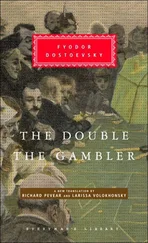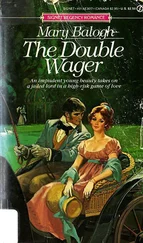“No. Bobbie.”
“He said he knew people whose pictures he took,” Pete explained, shoveling a forkful of French toast into his mouth. “Supposedly, that’s how he got to know them.”
“He never showed you his pictures, did he?” said Laurel.
Pete chuckled loudly, a great yelp, and sat back in his seat with his arms folded across his chest. “Not a prayer. He insisted someone was after them. Or him, maybe.”
“Any idea who?”
“The all-purpose they. Half the nutballs in this hotel think someone’s after them.”
“ Laurel, the French toast is very good with grape jelly, too, you know,” said Howard. “If you can’t afford real maple syrup, don’t compromise with the imitation stuff. Just use grape jelly.”
“Did he tell you where he lived when he was a photographer?”
“If,” said Pete.
“No, I’ve seen the photos,” Laurel said. “I spent last night in the darkroom up at the university making contact sheets and prints from some of the negatives. He really was a photographer.”
“Son of a gun.”
“Son of a gun,” she repeated.
“What are they of?” Paco asked. “Are they really of famous people?”
She told them of the images Bobbie had left behind, and what she had seen in the negatives she had printed the night before. And then Pete surprised her by inquiring, “You been to the library yet? Looked through the old magazines on the microfilms? Tell you what: You go to those Life magazines and those Look s. They got ’ em all. Then you’ll know for sure whether Bobbie really took those pictures or not by the photo credits.”
“That’s a terrific idea,” she agreed.
Howard smiled broadly and looked at his friend with pride. “Pete may be the surliest son of a bitch I know, but he’s also one of the smartest.”
“I made the French toast. I’m not surly.”
“Bobbie told someone I know that he was from Long Island,” she said. “Did he ever tell any of you that?”
“Yeah. And he grew up on a cove on the Sound,” Paco answered, and instantly she felt a thrilling flutter in her chest.
“What else?”
“He said he lived in a mansion.”
“Did he ever mention any siblings?”
Howard licked sugar from the doughnut off his fingers. “I can’t think of any.”
“He once lived in France,” said Pete. “At least he said he did. He said he fought there in World War Two.”
“When did he live there?” Laurel asked. “Did he tell you?”
“I guess it was right after the war. He fought there and then went back. Or maybe he just stayed. I don’t know. He was in Normandy.”
“And then I think he might have lived in Minnesota,” Howard said.
“ Minnesota?” The surprise in her voice was apparent.
“What, you don’t think Minnesota is possible?” Pete asked. “Seems a lot more likely than him shacked up in some French villa with a lot of sunflowers around it.”
“I think anything’s possible. I just never imagined him living in the Midwest -or, for that matter, in a French villa with sunflowers.”
“Hey, I have no idea if the villa really had sunflowers. All he said was that the Nazis took it over for their officers and trashed it pretty badly, and then the U.S. shelled part of it. He said there had been a vineyard and rows of grape arbors, but they were long gone by the time the war was over. One wing of it-not the wing they were living in, of course-was little more than a big ash heap.”
“Why did he go back? Was there a woman?”
“So he said.”
“Did he tell any of you her name? Or the name of the town?”
The three men looked at each other blankly. Clearly, he hadn’t.
“Okay then, what did he tell you about Minnesota?” she asked. “When did he live there?”
“Look, maybe live there implies too much. I don’t know if he was there a month or a year.”
“Either way: Why?”
“He said he had family there. Course, that don’t mean a damn thing, because he also claimed he had family in Kentucky,” Pete said, lifting his plate to a jaunty angle and then using the side of his fork to scrape the very last of the Mexican pie from the plastic. “Ask him on the right day and he’d have told you he had family on Mars.”
“Well, I think he really did have cousins in Kentucky. Who do you think he had in Minnesota?”
“That I don’t know,” Howard murmured, and his voice almost instantly grew deflated.
“Did he ever mention a town?”
“No. Yes-yes he did. Saint Paul. Is Saint Paul in Minnesota?”
“Absolutely.”
“And…”
“Yes?”
“Now that I think about it, maybe he did say something about a grandfather living there,” Howard continued, the act of remembering so physically taxing that he was scrunching up his forehead with the effort. “Is it possible that he had a grandfather living in Minnesota?”
“Certainly it is. What else? A neighborhood? A name? A street? Anything?”
“Oh, I wish I knew more. He mighta said more. But my memory? You know? It’s not what it once was.”
“What about Chicago? Did he ever say anything about Chicago?”
“Maybe,” Howard said, but Laurel could tell both from his voice and the way that Pete was glowering at him that he was stretching the truth for her benefit. He was telling her what he thought she wanted to hear.
“Okay, here’s one of the main things I can’t figure out,” she said when the awkward silence had grown too much for her. “Perhaps he left behind a clue with one of you: How did a guy who may have come from a very wealthy family wind up without a cent to his name? I know he had schizophrenia. I know he had emotional problems. I know he drank way too much. But why didn’t his family take care of him? Isn’t that what families do?”
“Not mine,” Pete said.
“Or mine,” Paco agreed.
“Besides, you’re assuming that ol’ Bobbie liked his family,” said Pete.
“And they, in turn, liked him,” Paco added, as he leaned back in his chair and lit a filterless cigarette off a burner on the gas stove behind him. He inhaled deeply, and then blew a halo of blue smoke into the air.
She thought about the Buchanans for a moment-Daisy and Tom and Pamela-and how dislikable they all really were. Likewise, she considered how much people seemed to enjoy Bobbie. Perhaps he was the black sheep of the family for the simple reason that he was a nice guy. A decent fellow. It was possible that the Buchanans had cut him off, but perhaps it was more likely that he had untethered himself from them-from the rampant thoughtlessness and casual lack of decency that seemed to mark that whole awful tribe.
“Tell me a story about Bobbie,” she said.
“A story?” Howard asked.
“Something he once did-or you once did together.”
“Anything?” Paco inquired, squinting against the smoke from his cigarette.
“Anything. Something to help me understand who he was as a person.”
The men looked at each other, not exactly stumped but unsure what Laurel was searching for.
“He was scared of the devil,” Paco said finally, shrugging.
“Aren’t we all,” said Pete.
“No, really. Bobbie once saw him.”
She sat forward in her chair. “You know, he told Emily that, too. Emily Young-his caseworker. What did he say to you, Paco?”
“He took the devil’s picture.”
“He did?”
“So he said.”
“What did it look like?”
“I don’t know. Maybe it’s why he went crazy. You know how we can’t ever see the face of God? Maybe we can’t see the face of the devil, either.”
“Oh, please,” said Pete. “He was crazy long before he took the picture of some carnival freak he thought was the devil.”
Читать дальше












